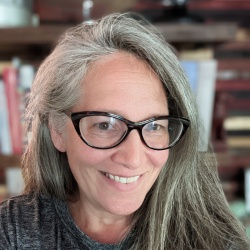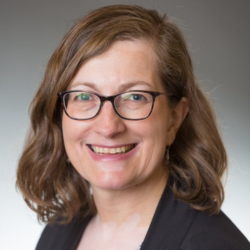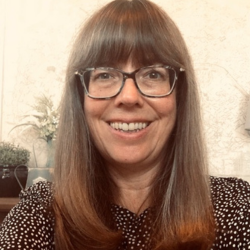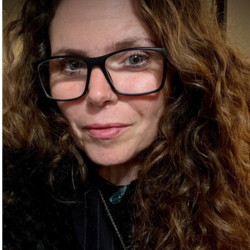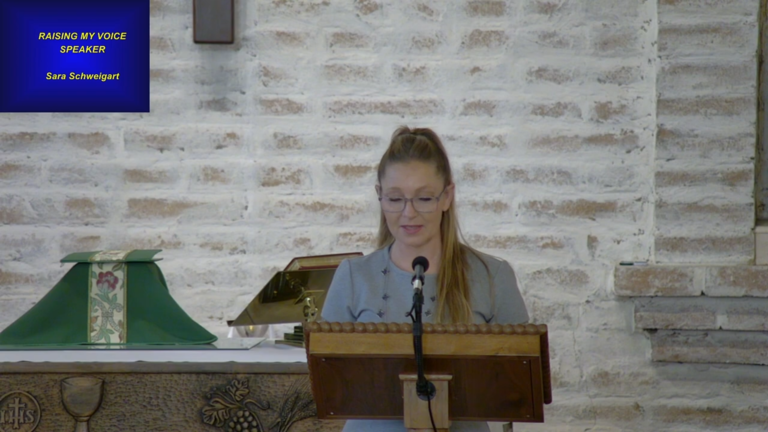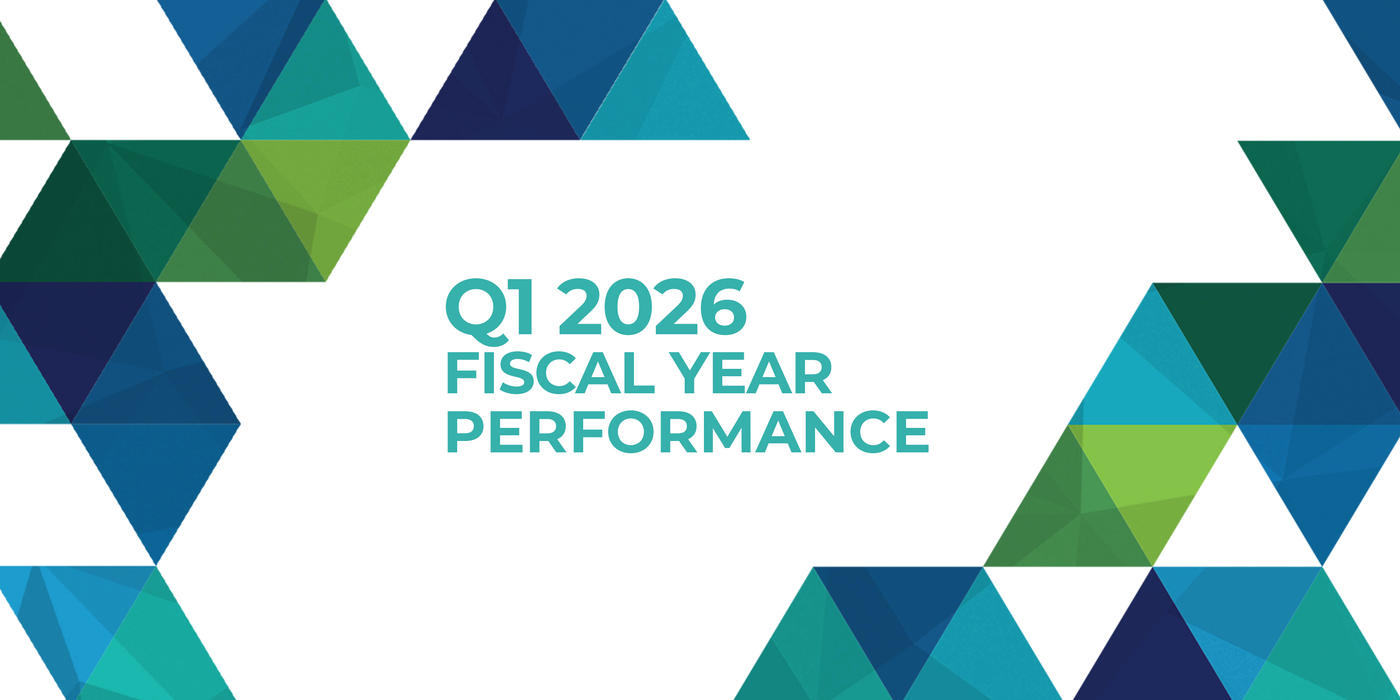Walden University launches initiative to help formerly incarcerated women advance their education.
Sara’s parents introduced her to alcohol at age 5. It started a life of addiction with cycles of recovery and relapse.
She became a mother at a young age. She struggled with grief, abuse, and not knowing how to be a good mother. Bad relationships and bad choices led her down a path to crime and incarceration in Perryville prison west of Phoenix.
she says.
In prison, she got sober, accepted responsibility, started recovery meetings. She became a state certified peer recovery support specialist. She completed college courses, took digital marketing classes, got certified in Salesforce software. She found the nonprofit Bridges Reentry, which helped her with a vision and a path for life after incarceration.
After seven years in prison and six months free, with the support of mentors from Bridges Reentry, she’s staying sober, reconnecting with family, working. She is also studying for a BS in Communication online through a new collaboration with Adtalem’s Walden University: Higher Education Reentry Success (HERS): Pathways for Formerly Incarcerated Women.
Higher Education Challenges After Incarceration
When she was incarcerated, Sara already had an associate degree and was close to finishing a bachelor’s. After she was released, she reached out to universities about finishing up.
“Other schools were like, sorry, we don’t want you. I couldn’t get a school to give me more than 90 credits to transfer into a bachelor’s program,” she says.
Bridges Reentry founder Deacon Gay Romack has seen this scenario with her mentees and universities.
“They get their GED and accumulate a lot of college credits on the inside just because they’re available,” says Romack. “But it’s not a pathway to a degree. With Walden there are options that our mentees never thought were possible for them.”
Higher education, she adds, helps remove the stigma of their incarceration and makes them more employable, which lowers recidivism.
Women Impacted by Incarceration
The stakes are larger than Sara and other Bridges Reentry mentees.
- From 1980 to 2021, the number of incarcerated women in the United States has increased 525%, according to The Sentencing Project.
- Arizona, where Perryville prison and Bridges Reentry are located, had the eighth-highest imprisonment rate for women in 2021.
- Annually, around 2,700 women are released from Arizona prisons.
Reentry programs are key.
“Formerly incarcerated women need to be surrounded by people who believe in change, even when they don’t believe that they can change. Your past mistakes or situation doesn’t have to define who you are. At any time in your life, you can reauthor your story,” says Dr. Veronica Huggins, who was a leader at Churches Embracing Offenders and is a social work visiting professor at Chamberlain University, which like Walden is part of Adtalem Global Education.
she adds. “From a capabilities and accessibility perspective, everyone has a different starting point in life.”
Walden and Bridges Reentry: A Shared Mission
The partnership with Walden goes deeper than the opportunity to complete a degree online.
says Romack. “That they want to give back and make meaningful changes aligns with Walden’s mission for graduates to make a positive impact. That’s also what reentry is all about.”
A Grassroots, Social Change Idea
The idea for the initiative came from Dr. Nina McCune, who has taught in the notorious Louisiana State Penitentiary in Angola. Today she is Walden’s associate dean for inclusive teaching and learning environments. She shared the idea with leadership as another way to live Walden’s founding mission of providing access to high-quality higher education for nontraditional learners.
“For someone in reentry, they’re incredibly vulnerable. Their time isn’t their own. They have probation requirements. They are more than likely in transitional housing separated from their children and family. They are not financially stable,” says Dr. McCune. “They need a space where they can feel accepted and heard. Being welcomed is critical to their success. The way Walden does that makes it a great fit.
“We also know that education plays a huge role in reducing recidivism and allowing a person to feel whole so that they can manage their life,” she adds.
Dr. McCune has met with several Bridges Reentry mentees. “They are well aware of the things they’ve done right and wrong in life. And they’re crystal clear that they want to keep on moving forward,” she says. “The best result we could ever hope for in any of our learners is that they become change agents within their communities.”
Starting with Career Development
Before they pursue higher education, women reentering society are often rejoining the workforce. For some it is one of the terms of their release or they have debts to pay to victims, the corrections system, or even on previous student loans. This comes with many challenges.
says Dr. Crystal Francis '18, a Walden PhD graduate in Public Policy and Administration devoted to justice reform.
Unemployment rates for formerly incarcerated people are 27%—higher than they were for Americans during the Great Depression, according to the Prison Policy Initiative.
Walden is helping to address this by connecting Bridges Reentry mentees with its Career Planning and Development team. Dina Bergren and Denise Pranke in that department are excited to help. Through tailored, one-on-one advising that emphasizes reflection, career exploration, and resume and interview preparation, they hope to help mentees come up with a plan and land a rewarding job.
says Bergren. The team has also developed online resources for formerly incarcerated individuals, including a sample resume.
Bergren notes that it is a challenge for formerly incarcerated people to gain the trust of potential employers. Dr. Francis has encountered this as well. She even worked on a program that taught entrepreneurship skills so that formerly incarcerated people could create their own jobs rather than rely on others to hire them.
“It is really important for employers to recognize that when a person has a record, it does not mean that they are unable to perform work,” says Dr. Francis.
“To win the trust of employers, they need to explain in a professional manner what they’ve learned, how they’ve changed, and give evidence that they’ve changed,” says Bergren. “One way they can do that is to take a course to show that they are actively engaged in their future and that they are ready to re-enter the workforce.”
Offering a Variety of Higher Education Options
Dr. Francis has also encountered people reentering the workforce with degrees in professions they can no longer pursue given the nature of their conviction. She says higher education, especially micro-courses and professional development, is an opportunity to try a new field before they commit to it.
Through the current initiative, Bridges Reentry mentees have access to more than a dozen of Walden’s online, professional development micro-courses through its School of Lifelong Learning. Micro-courses are non-degree, non-credit courses for learners who want to gain general knowledge, learn or upgrade a skill, or enrich their understanding. They include Excel Basics, Let’s Talk Project Management, and Google Analytics.
says Dr. Deborah Morris, director of product management.
“We think this partnership really demonstrates Walden’s commitment to meeting learners where they are and providing opportunities to learn and grow no matter where they are starting.”
Providing a Warm Welcome
Whatever higher education path mentees choose—micro-courses or degrees—Walden is preparing a warm welcome. While online education’s flexibility is a great fit for nontraditional students with schedules that vary, asynchronous courses can be isolating.
Angelica Lohr, associate dean of undergraduate support in the Office of Academic Support and Instructional Services, is working on ways for Bridges Reentry students and Walden administrators, faculty, and student support staff to connect in real time in formal and informal ways.
That includes a live orientation and Café Thrive. The latter is a relaxed online space for students. A virtual coffee shop where you can drop in and study with, or just around, others. Student support team members are there if someone has a question, but if they don’t, they might just be sharing memes or cat photos to keep the mood light.
Lohr is accustomed to helping students in challenging circumstances from her years of working in community colleges. “I’ve had students in domestic violence shelters, students living in their cars who would stay outside campus to get Wi-Fi,” she says. “These students were coming to education because that’s the thing that changes their life. That’s going to open the door, and they may not even know what door it is, but they know that it starts here.
she adds.
“It’s the type of thing that gets us out of bed in the morning.”
More of Sara’s Story
For more information, email the Adtalem Global Communications Team: adtalemmedia@adtalem.com.



